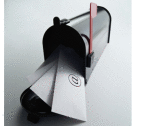EHV-1 Information 5-29-11
 Thursday, May 19, 2011
Thursday, May 19, 2011 Many have heard about the current outbreak of Equine Herpes Virus (EHV-1) and Equine Herpes Virus Myeloencephalopathy (EHM) in the West, in horses that recently attended a cutting horse event in Ogden, Utah from April 29th to May 8th, 2011. Here is some important information regarding this disease and current situation:
1. New York does not currently have any horses which attended this cutting horse event in Utah, or were exposed to any of the horses which attended this event. Several western states, however, do have horses confirmed to have the neurologic form of this disease. At this time, it appears that the outbreak has been contained to the western states.
2. Equine Herpes Virus is an airborne virus which generally causes respiratory disease. There are several strains of the virus. EHV-4 causes respiratory disease but may also cause abortions in broodmares. EHV-1 is a related strain, but in addition to causing respiratory disease and abortions, it can cause a neurologic disease (EHM) which generally manifests as hind end weakness progressing to recumbancy (inability to rise) and bladder paralysis. This does not mean that every horse that contracts EHV-1 will contract the neurologic form of the disease.
3. EHV-1 in general is a very common virus. Because of the nature of Herpes viruses, it has the potential to lay dormant in some horses for a long period of time; they may only show signs when stressed (such as during trailering/showing).
4. While we do have vaccinations against this virus (this is the "Rhino" vaccine), no vaccine has a label claim against the neurologic form of the disease. Vaccination should decrease horse-to-horse transmission of the virus in general, however, so we do believe it to be valuable even in the face of the neurologic form.
For more information about the current situation in California, go to: http://www.cdfa.ca.gov/ahfss/animal_health/equine_herpes_virus.html
What does this mean for your horse, now?
We do not believe that there is a large threat of this specific outbreak spreading to this area. However, cases of EHM have been reported in the state of NY in the past year, unrelated to this outbreak. These incidents have been controlled with good biosecurity, but we always need to be aware that this disease is out there.
We recommend, as we always have, that horses travelling to shows or being exposed to different populations of horses should be vaccinated against respiratory viruses. The Rhino vaccination provides protection for 3 months, so should be kept current during the show/travel season.
General biosecurity practices should always be taken, which include:
1. Limiting your horse's exposure to other (unknown) horses whenever possible.
2. Institute an "isolation" policy for new horses on your farm - this can be a distant paddock, or a stall in a separate building. Any new horses should remain there, isolated from the rest of your equine population for at least 3 weeks. Temperatures should be taken twice daily, and you should monitor for nasal discharge, lethargy, or any other signs of illness. This is ALWAYS a good practice, regardless of an outbreak situation. You can also take this time to check a fecal on this new horse, and get it properly dewormed before turning it out with the rest of the herd.
3. Wash hands, disinfect equipment (and trailers), change clothes and shoes when moving between horse populations (i.e. when coming home from a clinic where you rode and were exposed to lots of different horses).


